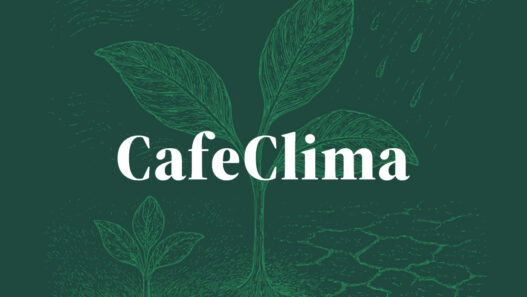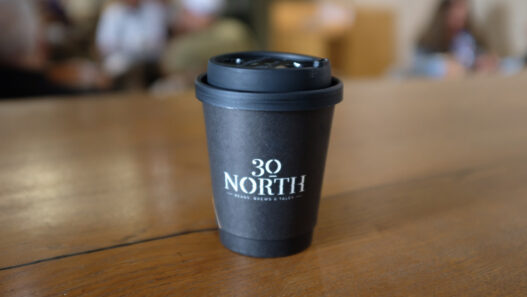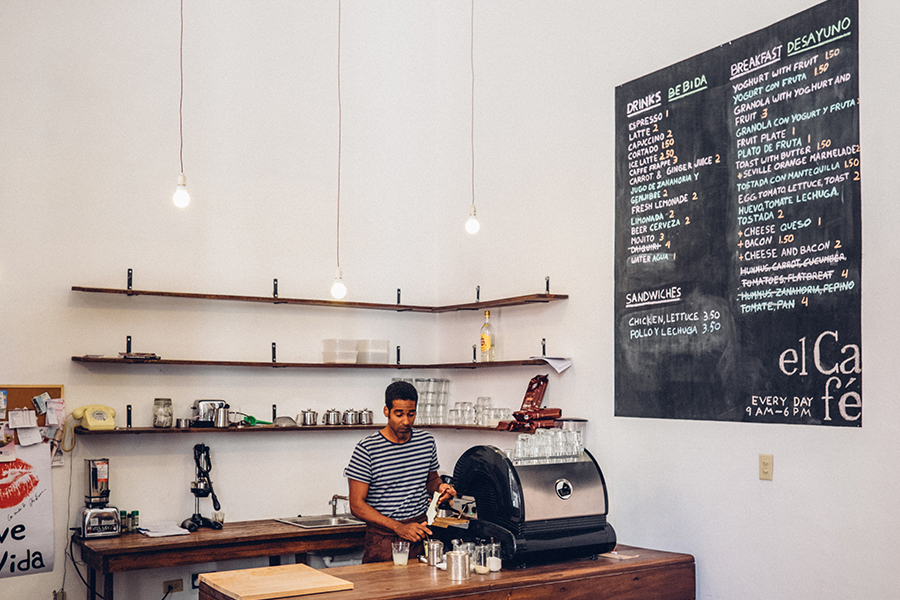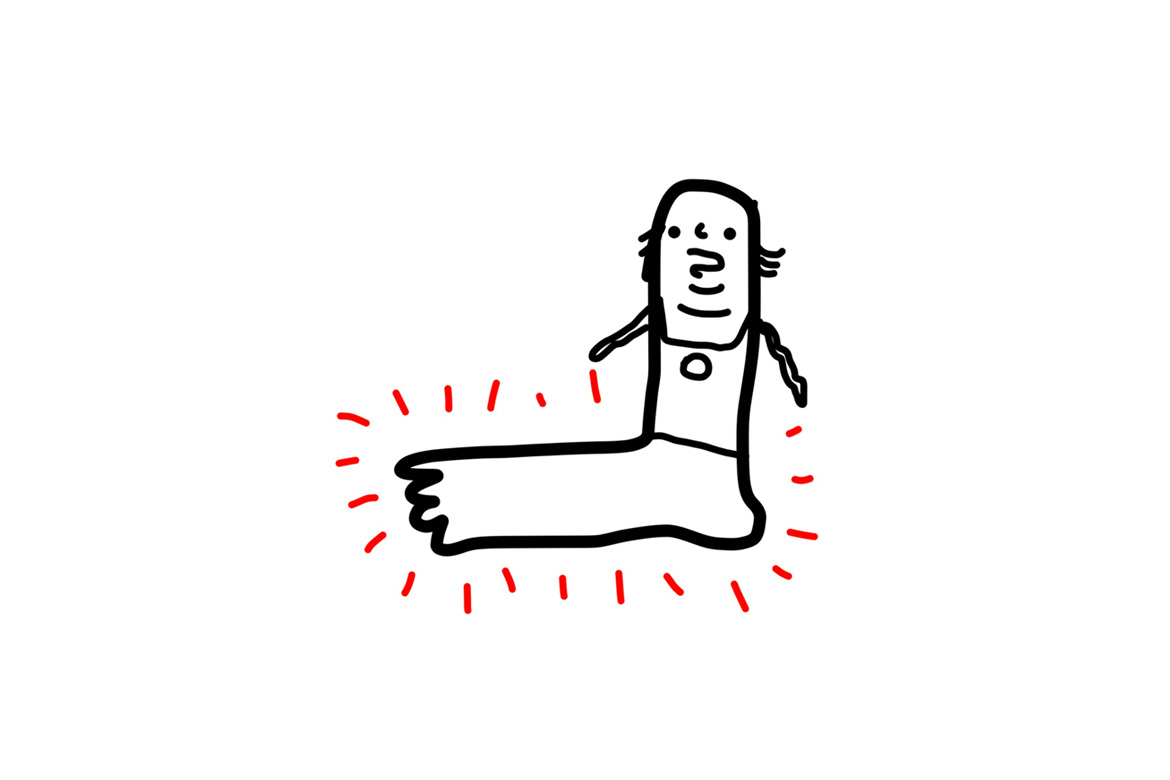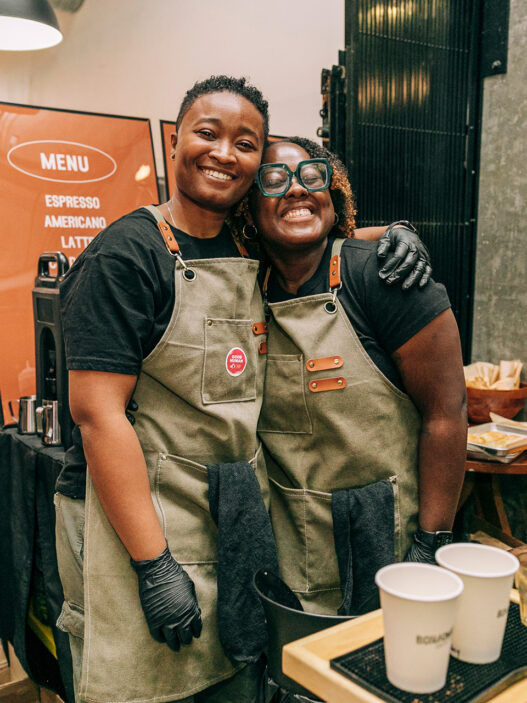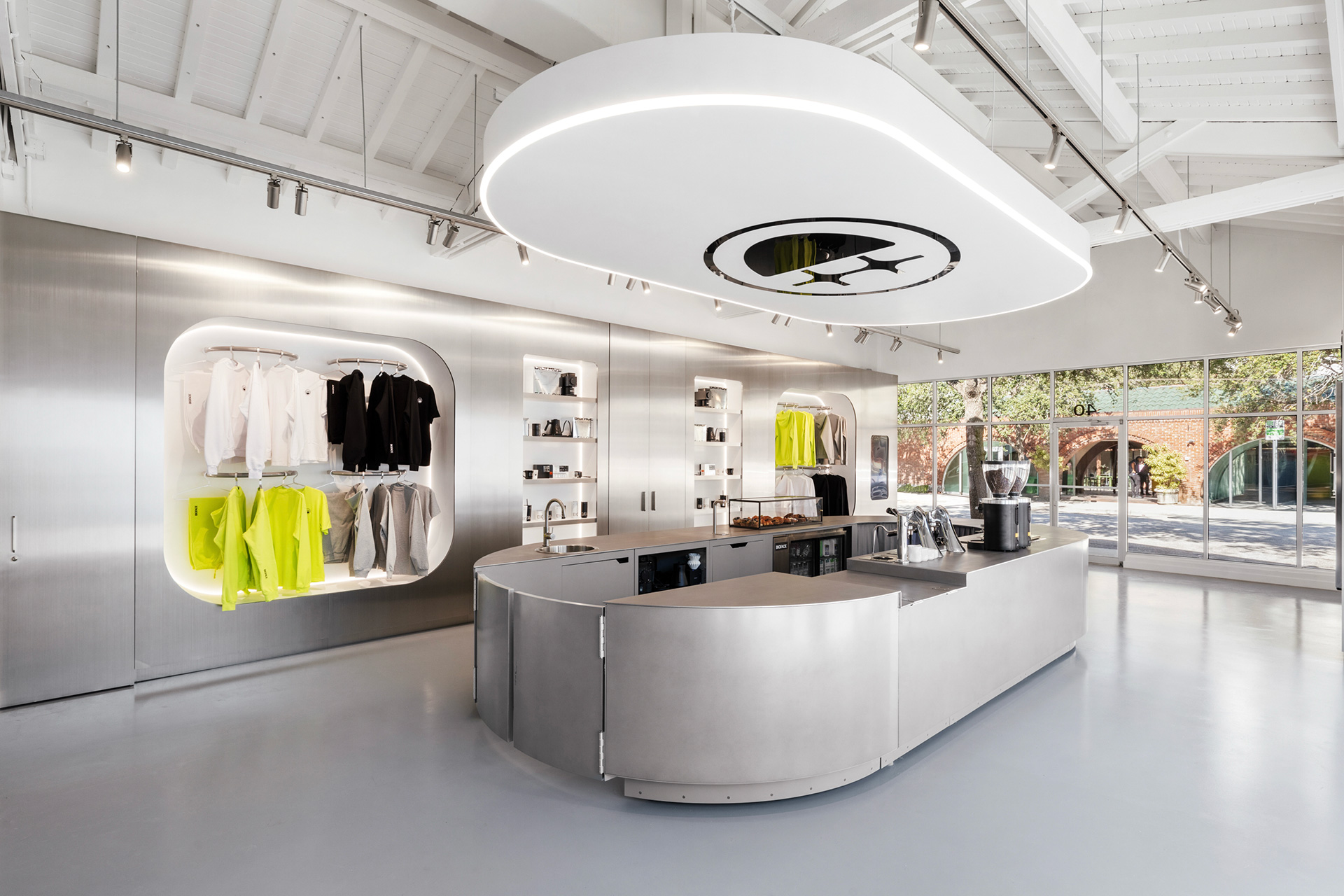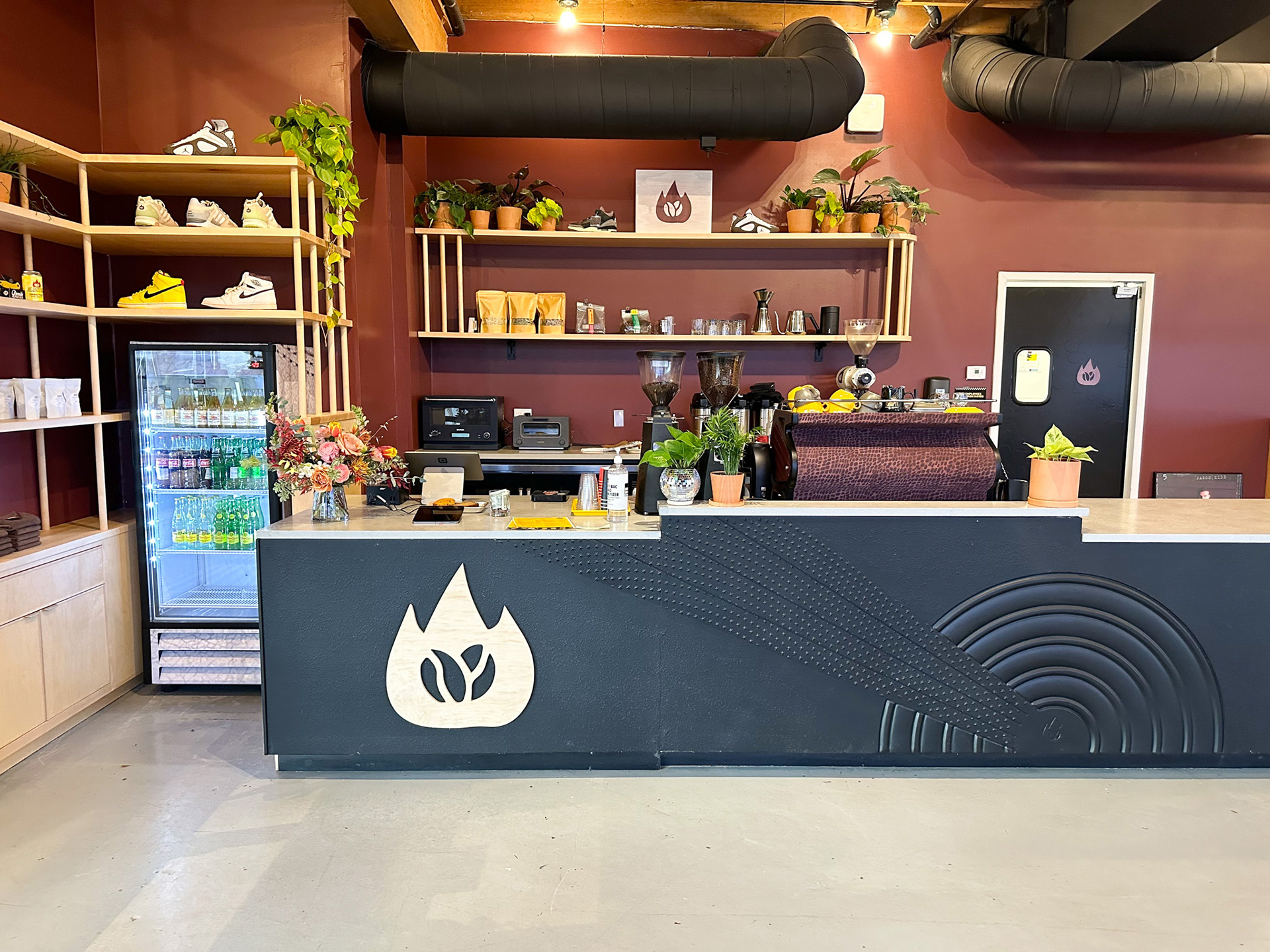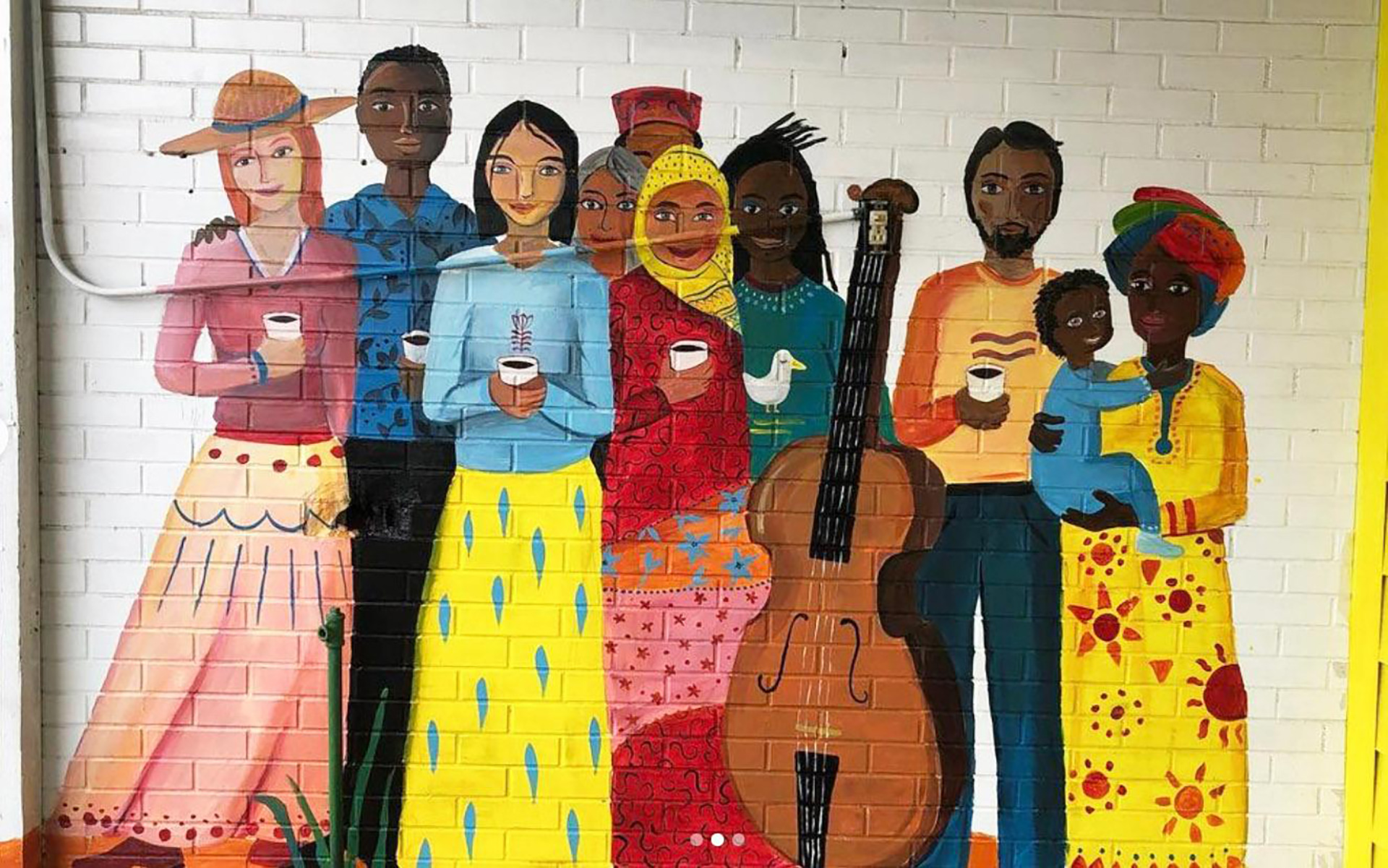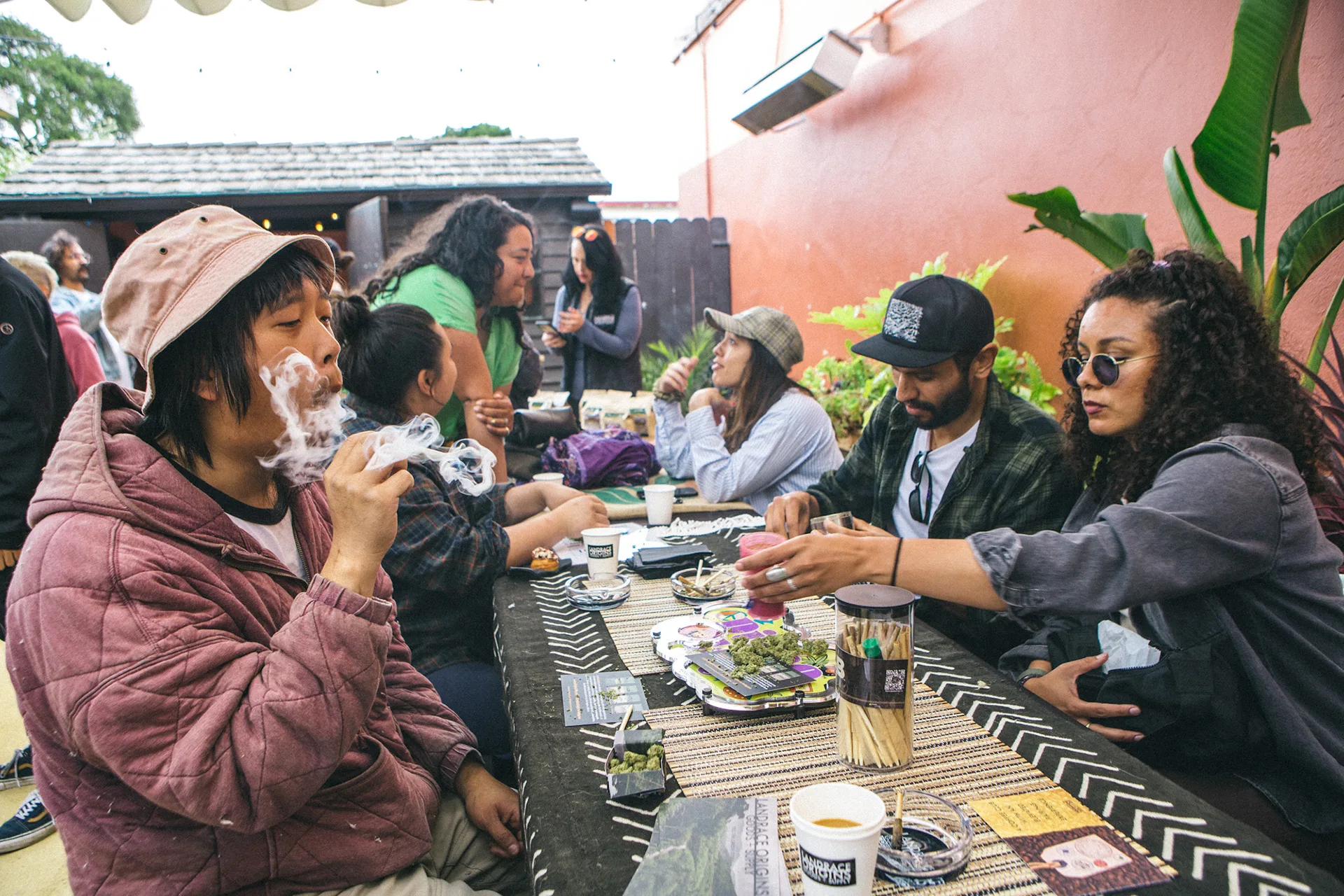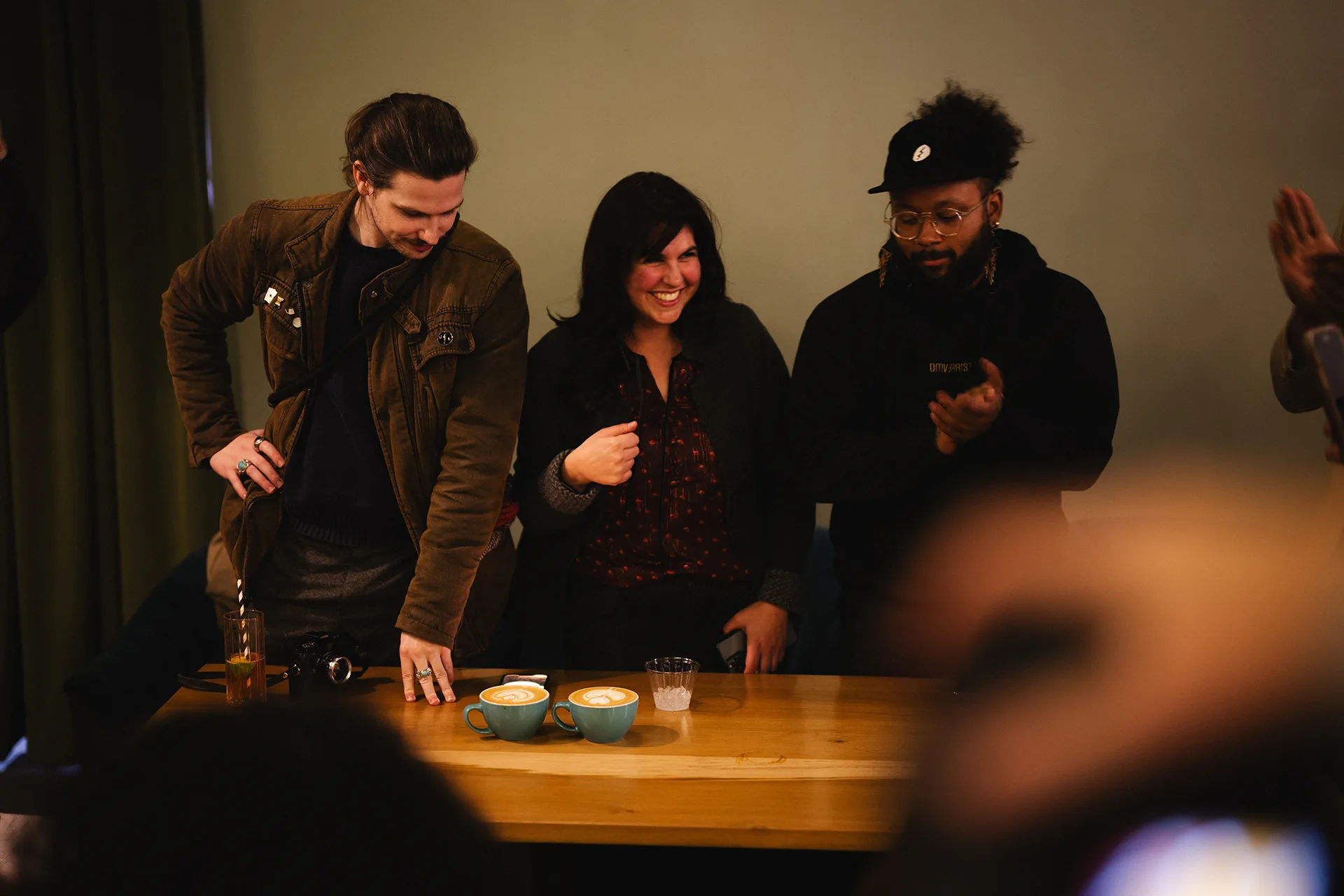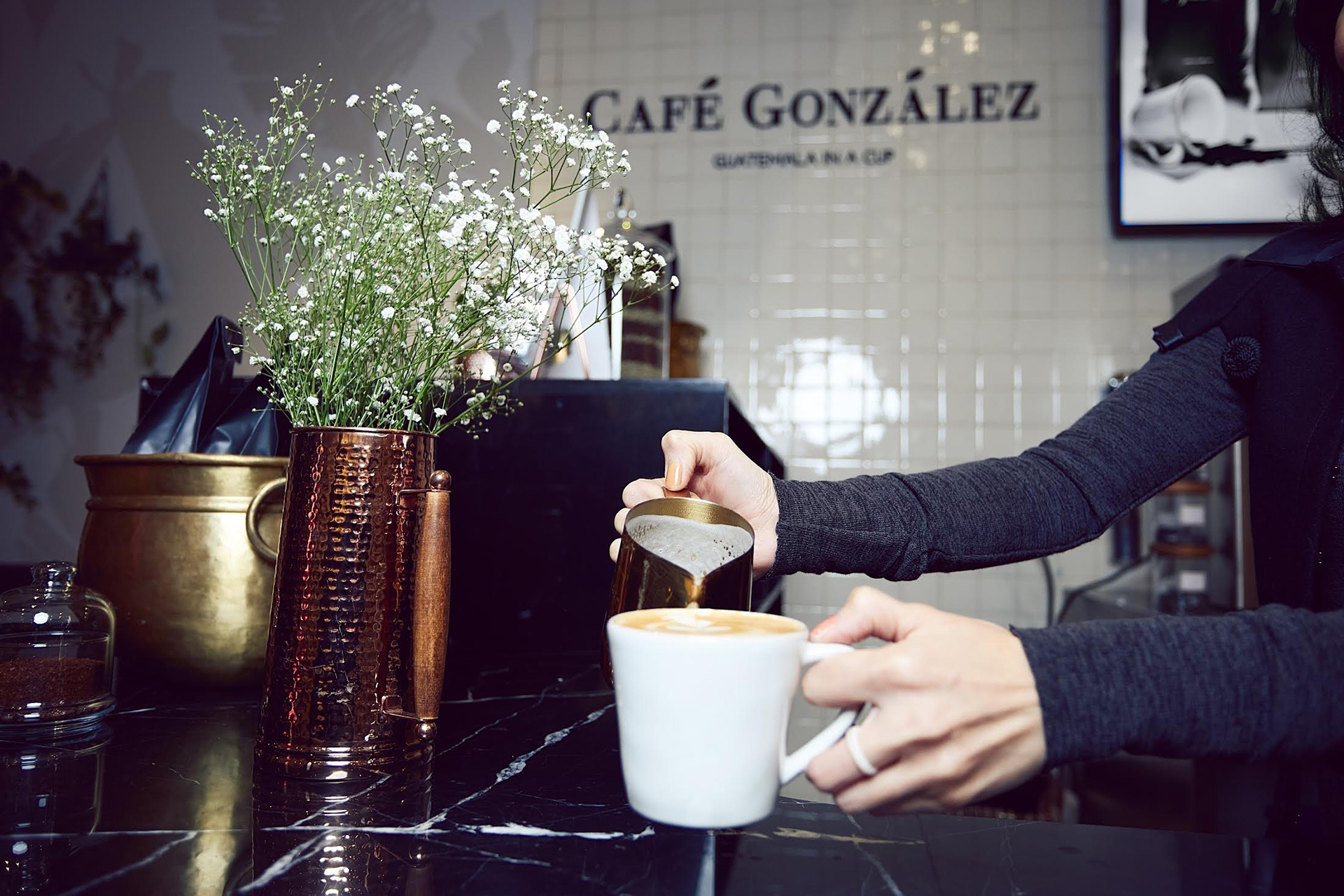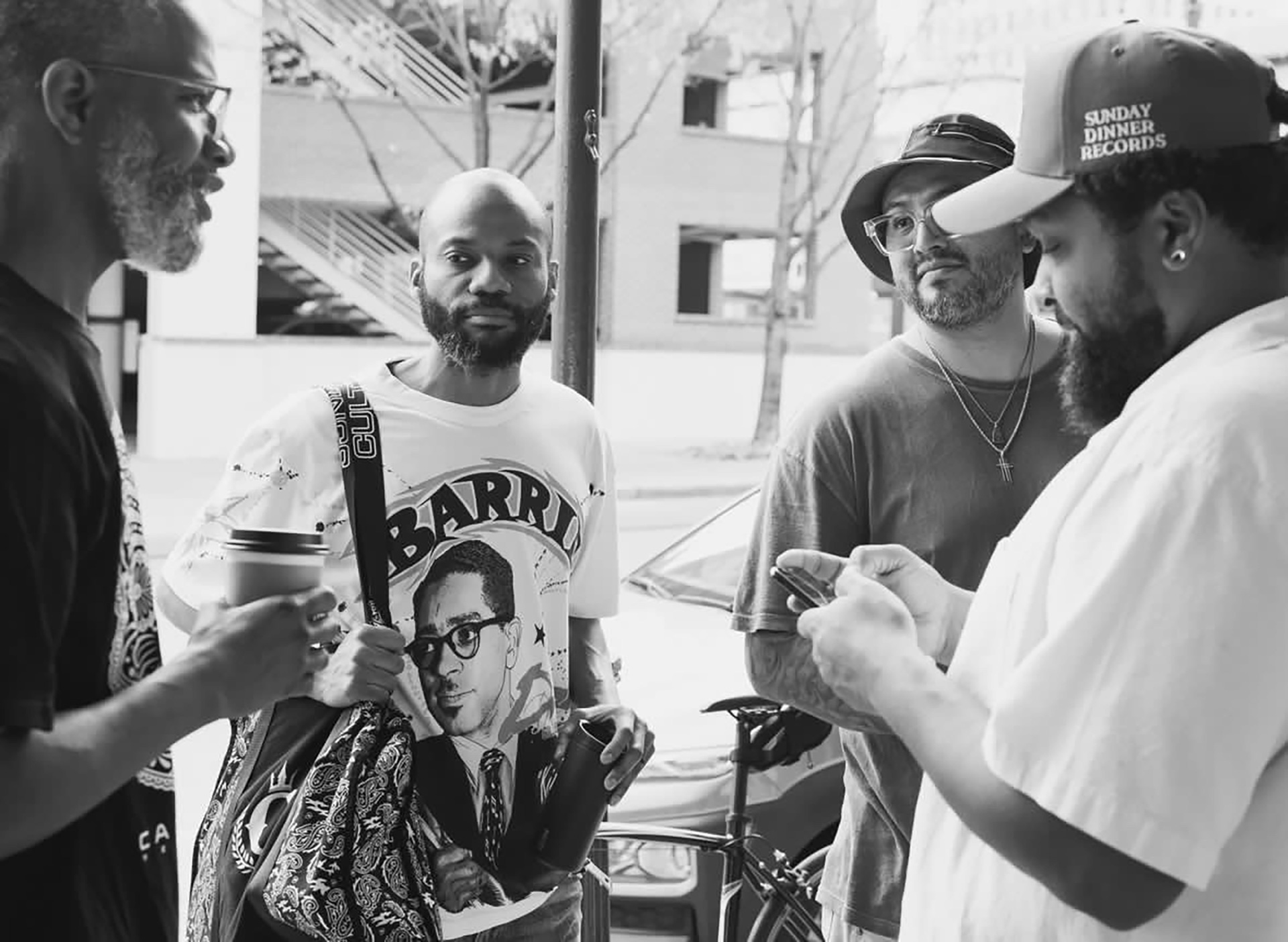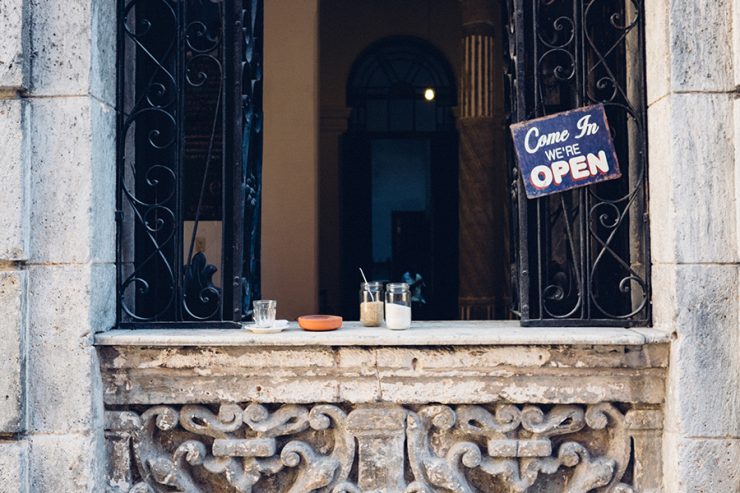
Blocks from Ernest Hemingway’s fifth floor hideaway, where he began to write For Whom the Bell Tolls, El Café’s owners consider a question a little less novel: “How are we going to find milk today?”
It’s not just the caffeine keeping Marinella Abbondati and Nelson Rodriguez Tamayo on their toes. Less than a year since opening their cafe in Havana’s historic center, they still relish the challenges of Cuba. The state handles imports and allocations, from milk, to coffee, to equipment—a.k.a., everything—meaning that businesses can’t be selective, but must certainly be savvy. If business is tough, El Café doesn’t let on; its calm, sunlit interiors are crisp and pared down with whitewashed walls, tiled floors, and simple touches of grain.
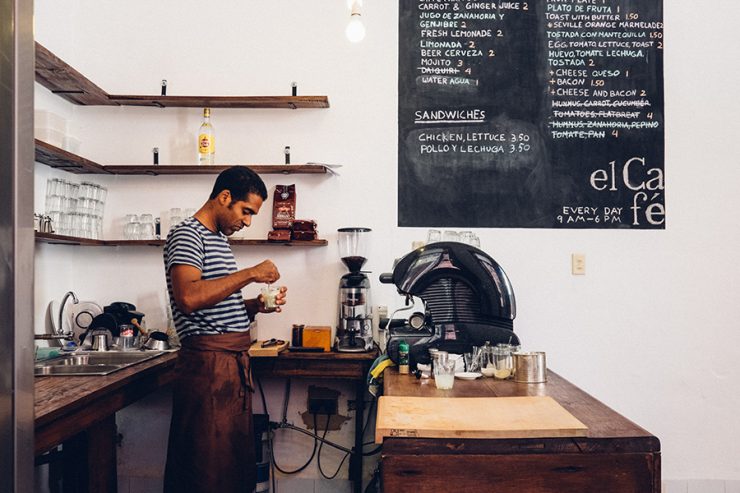
A city native, Nelson Abbondati met Marinella in 2006 while she studied abroad in Havana. They stayed for three years before marrying and moving to London for six, where Nelson Abbondati managed the kitchen at a roastery cafe, Allpress’ London flagship.
After moving back to Havana in 2014, Nelson Abbondati decided to open his own cafe, drawing from the minimalist European cafes that had lulled the indifferent coffee drinker into a lover (he may be Cuban, but he wasn’t always a fan). He walked Old Havana’s streets, knocked on doors, and hoped to find a homeowner that might welcome it, too. Most doors shut—in his face—but one finally opened, and so did his cafe.
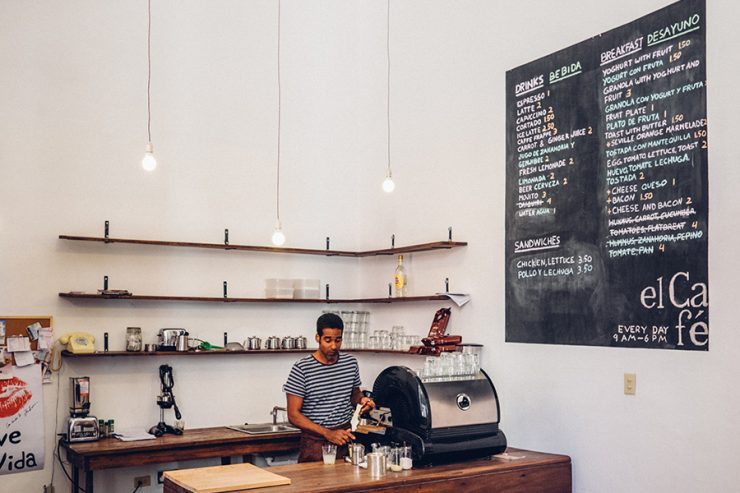

Like a child born late in their parents’ lives, El Café demonstrates an overt appreciation for the classics with one foot firmly in the present. Swirling, central columns stand tall after being stripped of garish paint to reveal organic cement forms, while Spanish tiles warm the space with ashy blue and pink brushstrokes. Stained glass lightens dark window and door frames, while an array of minimalist chairs—blonde, mahogany, glossy white—give the space a hint of far-flung style.
Most furnishings are from the Abbondati’s home, while a sampling of art is on loan from Ole Martin Lund Bø, a Havana-based Norwegian artist.
El Café’s beans are a varied bunch. They pull from two of Cuba’s larger producers, Serrano and Cubita, which they blend themselves to keep consistency (a producer’s stock can disappear overnight for weeks). Often, they source from a roastery in Old Havana, El Escorial, but they do so mindfully. “The story goes that there is just one (older) employee who really knows how to roast coffee, but that he sometimes falls asleep on the job and burns the beans!” says Marinella.
Luckily, Cubans like their coffee black.
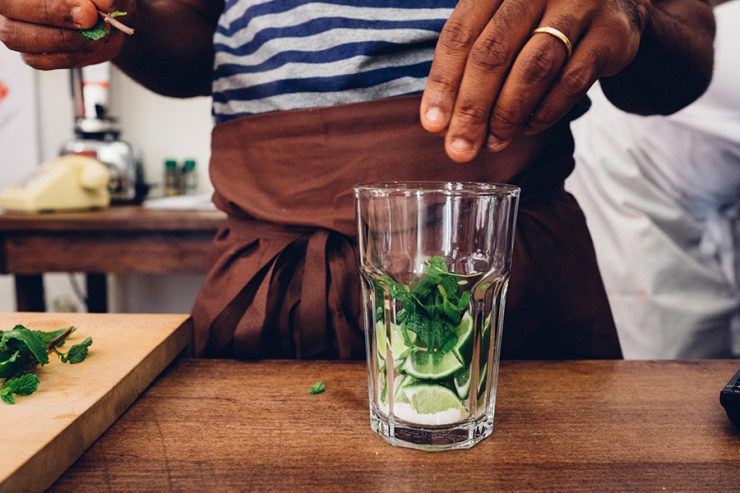
Until they can roast their own beans, they focus on what they can control: extraction. They use a standard Pavoni Bar 2V espresso machine, the best they could get their hands on in Cuba. One day, they hope to import a La Marzocco machine.
Between bittersweet café cubanos, they serve a seasonal menu that’s based purely on what’s stocked at the market. A pulled pork sandwich is a signature, while a few vegan and vegetarian options are staples for backpacker types. Ask Marinella Abbondati, and she’ll say it’s Nelson Abbondati’s homemade sourdough that sets them apart.
In a sense, El Café hopes to provide something timeless to an island that has long been stuck in time—a mighty good loaf, and the simple, honest pleasure of coffee.
Keith Flanagan is a freelance journalist. This is his first feature for Sprudge.
Photos by Jorge Güiro.




